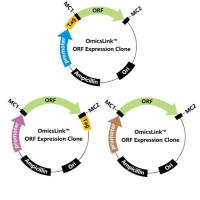Animal Models for Heart Failure
互联网
479
Heart failure (HF) is a major cause of morbidity and mortality worldwide. Although many therapeutic means are available to prolong the life of HF patients, why HF develops is still poorly understood. Investigators still seek a truly appropriate animal model that will reliably mimic human HF, so that the cause of the disease can be targeted and proper therapeutic modalities implemented. HF is a complex condition in which multiple molecular mechanisms interact, resulting in compromised cardiac function and often death. Once this elusive animal model is found, investigators will be able to translate findings from the model to human disease, thereby allowing analysis of the molecular changes and dissecting out multiple complicated changes in HF cascade. In this chapter, we describe the methodology that is used to analyze both transcriptional and translational molecular changes and correlate them with cardiac function to assess the cause-and-effect relationship to HF. We used one particular animal model of HF as an example (induced by causing overexpression of myotrophin specifically in the heart) that allowed us to analyze the changes during initiation, progression, and transition of hypertrophy to HF. We have also summarized some other animal models of HF currently available to study mechanisms of HF.








